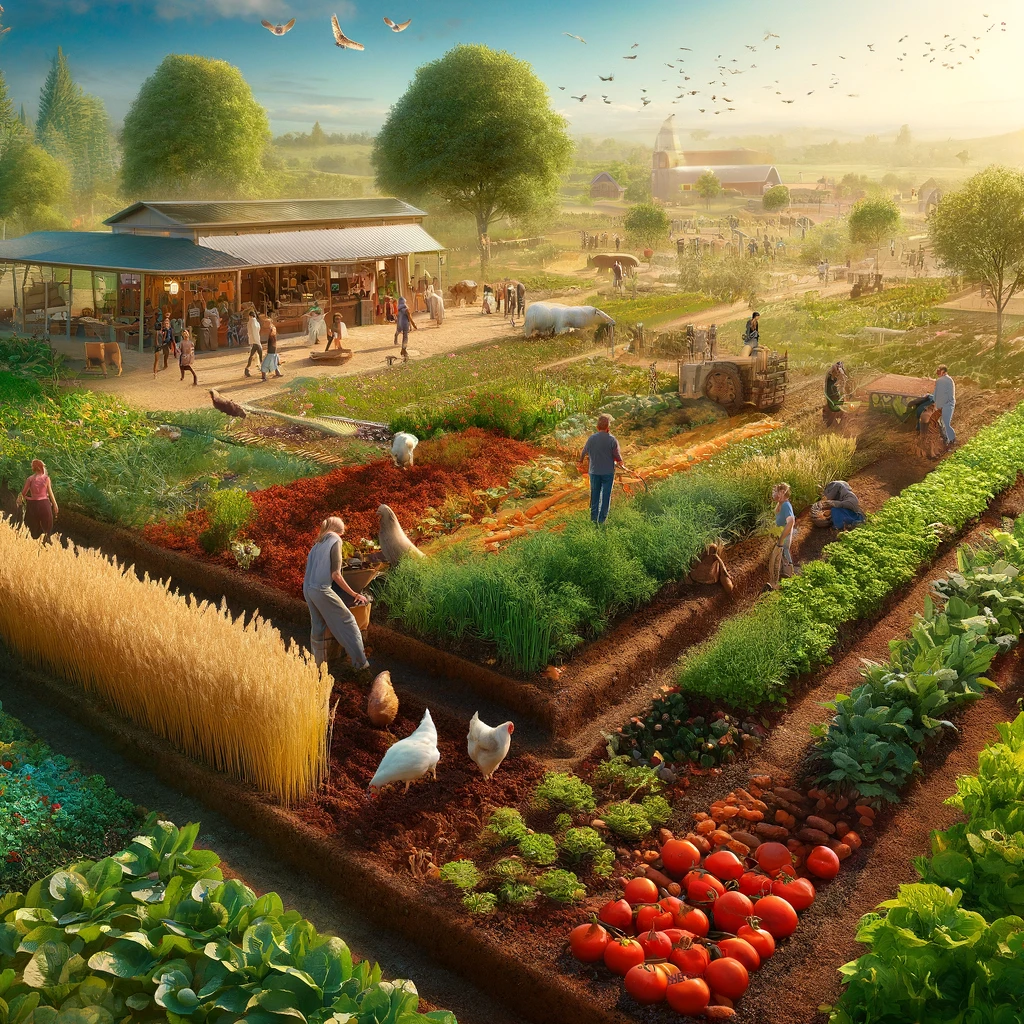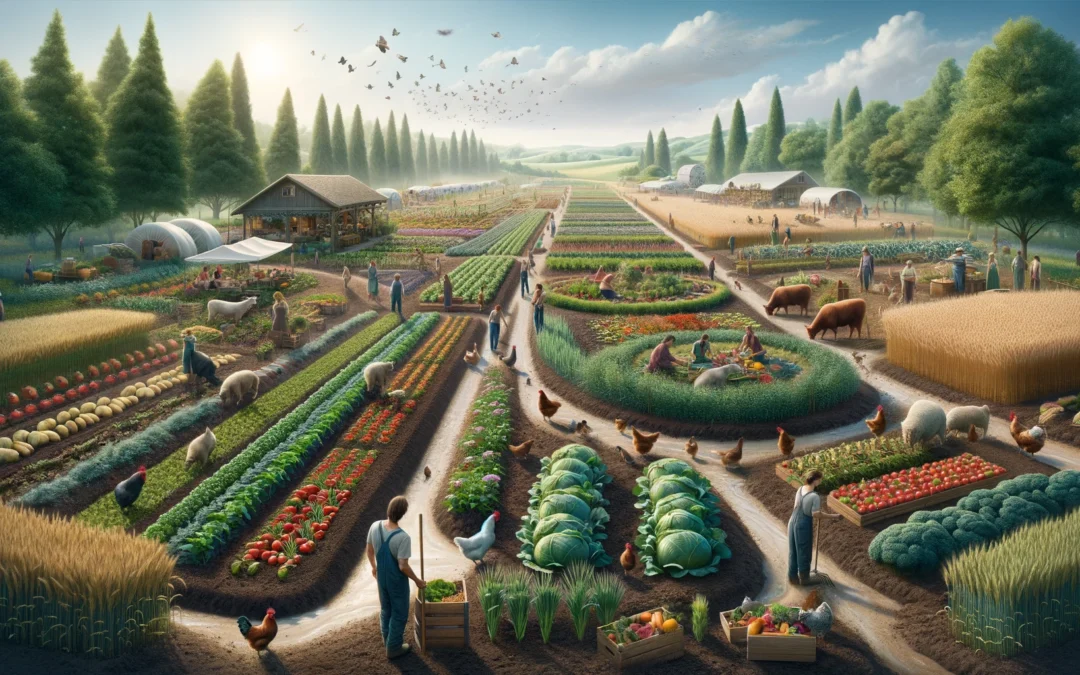Regenerative agriculture is an all-encompassing farming philosophy essential for developing sustainable food systems. By focusing on soil health, biodiversity, and ecosystem resilience, regenerative agriculture addresses the social, economic, and environmental issues facing modern agriculture. This article explores how regenerative agricultural techniques contribute to establishing sustainable food systems that guarantee long-term food security, environmental sustainability, and community well-being.
Healthy Soils
Improving soil health is one of the core ideas of regenerative agriculture. Sustainably produced food depends on healthy soils because they promote strong crop development, improve nutrient cycling, and retain more water. Practices like crop rotation, composting, and cover crops increase soil organic matter, enhancing soil fertility and structure. Consequently, regenerative agriculture ensures that agricultural lands remain resilient and productive over time, supporting long-term sustainable food systems by preserving and enhancing soil health.
Promoting Biodiversity
Another important component of regenerative agriculture that supports sustainable food systems is biodiversity. Diverse farming systems are less likely to be affected by pests, diseases, and climate fluctuations. Agroforestry, integrated livestock management, and polycultures are some of the practices that support biodiversity above and below ground. These varied ecosystems support numerous beneficial organisms, such as soil bacteria and pollinators, which are necessary for the well-being and productivity of farms. Thus, regenerative agriculture improves ecosystem services—which are essential for the provision of sustainably produced food—by promoting biodiversity.

Reducing External Inputs
Regenerative agriculture also highlights the importance of cutting back on external inputs like pesticides and synthetic fertilizers. These inputs can have negative environmental repercussions, including soil erosion, water pollution, and biodiversity loss. Regenerative methods, such as using organic fertilizers and integrated pest management (IPM), reduce the demand for harmful chemicals. By minimizing dependency on outside inputs, regenerative agriculture lessens the ecological footprint of food production and supports environmental sustainability.
Enhancing Community Resilience
Regenerative agriculture promotes food sovereignty and community resilience by strengthening local and regional food systems. Initiatives like cooperative farming, farmers’ markets, and community-supported agriculture (CSA) bolster local economies and create direct relationships between producers and consumers. By encouraging the consumption of locally grown food, these models reduce food miles and associated carbon emissions. Furthermore, regenerative agriculture enhances food security and ensures that communities have access to fresh, wholesome food by supporting robust local food systems.
Ensuring Economic Sustainability
Another significant way regenerative agriculture contributes to sustainable food systems is through economic sustainability. Regenerative farmers can increase financial stability and reduce economic vulnerability by diversifying their livestock and crop portfolios. Additionally, regenerative farming techniques often produce superior produce that can fetch higher prices in markets that value sustainably and organically produced goods. These financial gains contribute to the long-term viability of farming, making it an attractive option for future generations.
Conclusion
In summary, regenerative agriculture plays a crucial role in creating sustainable food systems by improving soil health, fostering biodiversity, reducing the need for external inputs, and bolstering regional food economies. As the global community faces growing challenges related to food production and environmental sustainability, regenerative agriculture offers a practical and transformative path toward a more sustainable and equitable future.
For more insights on regenerative agriculture, visit EAT Community. Join our community to learn from expert farmers who are already implementing regenerative practices and become part of a movement towards a sustainable future.
Related Articles and Resources:
- The Essential Guide to Regenerative Agriculture: A Sustainable Future for Farming
- What is a Sustainable Food System?
- Embrace the Future of Farming: The Power of Regenerative Agroecology
- Sustainable Agricultural Practices that Farmers Should Embrace
- How to Ensure Environmental Health and Biodiversity
- Solar Energy: A Necessity for a Sustainable Future


Recent Comments